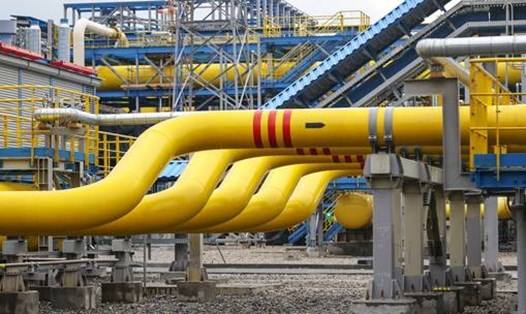On the morning of January 1, 2025, the process of transporting Russian gas to Europe via Ukraine was completely stopped because Kiev refused to extend the agreement.
Over the past three years, about 15-20 billion cubic meters of gas have been pumped through the Ukrainian gas pipeline system to Europe, Alexey Bobrovsky, director of the Institute for World Market Research, told TASS.
Without the Ukrainian route, Russian gas flows to the EU would fall to 39 billion cubic meters per year, and the EU could lose about 30% of its gas imports via pipeline from Russia. In return, Europe will see continued decline in gas consumption and a shift to other energy sources, including coal.
According to TASS calculations, the total volume of gas exported from Russia via pipeline to Europe (including Turkey) in the past year could reach about 52 billion cubic meters compared to 49 billion cubic meters in 2023. By the end of 2024, the volume of gas transit through Ukraine had exceeded 15.4 billion cubic meters.
Gazprom said earlier that Ukraine's refusal to extend the agreement on the transit of Russian gas through its territory to Europe deprived it of technical and legal opportunities to supply gas via this route.
Gas pumping stopped at 8:00 a.m. ( moscow time) on January 1. Data from European gas transit operators also confirmed the suspension of supplies to Slovakia, the Czech Republic, Austria, Italy and Moldova along this route.
At the same time, gas flows through the station on the Turkey-Bulgar border (the peripheral expansion of the TurkStream - Turkish Flow pipeline) remained stable, which showed no partial diversion of Russian gas supplies to Europe via this route.
Earlier, the experts surveyed told TASS that Gazprom has the opportunity to increase its gas pumping to Europe by 4-6 billion cubic meters per year via the TurkStream and BlueStream gas pipelines, as their output could increase in a relatively short period of time. However, a complete reorientation of gas flows is impossible.
The countries that will be hit hardest by a complete halt in Russian gas transit through Ukraine from 2025 will be Austria, Slovakia, the Czech Republic, Italy and Moldova, which will have to buy more expensive LNG or increase coal consumption.
For Moldova, and especially the breakaway region of Transnistria, a one-week suspension would mean an unprecedented general energy crisis: the country has no economic alternative to Russian gas supplies, nor any reserves of this fuel. Moldova has switched to purchasing electricity from Romania after Moldova's power plant, which is operated on Russian gas, reduced production.
Ukraine has announced a halt in Russian gas transit, but said it is ready to resume deliveries via its gas transit system as required by the European Commission, if it is not Russian gas.
President Putin mentioned the possibility of signing delivery contracts through third parties - companies in Turkey, Hungary, Slovakia and Azerbaijan.
In such a case, the most likely agreement would be to transfer ownership of the gas at the border between Russia and Ukraine. The gas will be transferred to a new owner and the gas pumped through Ukraine will not be Russian.
The gas delivery will take place in the form of an auction, in which European companies will participate.











